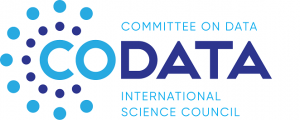 Five years flew by, including a pandemic that locked us in our corners of the world for quite some time. One of the fond memories I will keep from my CODATA presidency is how the staff and the Executive Committee stand together, both in times of joint progression and in times that were challenging due to natural and geopolitical disasters.
Five years flew by, including a pandemic that locked us in our corners of the world for quite some time. One of the fond memories I will keep from my CODATA presidency is how the staff and the Executive Committee stand together, both in times of joint progression and in times that were challenging due to natural and geopolitical disasters.
Before I dive in some scientific and policy content, let me first express my gratitude to the exceptional staff of the CODATA Secretariat. Simon and Hana, who operate as a Formula 1 pit stop team in good and bad times, as well as Laura and Asha…
I can see only one flaw in the team (which I share myself and probably even aggravated): they work too hard! But – they also know how to enjoy the rare moments of relaxation we had. In short, the team made my period as CODATA President a great experience and I am very proud that I have worked with such an impactful global organisation. Not that they are totally rid of me now…
My successor Mercè Crosas inherits not only the team, but also an impressive Executive Committee. The ‘ExComm’ of CODATA plays a very important and active role, and I have experienced it as a uniquely motivated group of strongly networked professionals that enables the global impact of CODATA. Mercè will be the ideal President now as she is a bridge builder. In the coming decade CODATA needs to be more than ever a consolidator and a convener of like-minded data stewards, scientists, policy makers and increasingly also the private sector.
The two new Vice-Presidents, Daisy and Richard, who both were ExComm members during my presidency and in whom I built a lot of trust, will form a great team with Mercè, other Officers and the Secretariat.
Let me now move on to some achievements of which CODATA can be proud and reflect a bit on its future. I’d like to start with the initiative taken by our previous Vice-President Jianhui Li, named ‘The Global Open Science Cloud (GOSC)’, aimed to be a mechanism for collaboration among the Open Science Cloud-type initiatives springing up all around the world. This is an activity that is clearly in CODATA’s mandate and mission, referenced in the International Science Council (ISC) Action Plan, and continuing CODATA’s longstanding engagement with Open Science platform initiatives in Africa, South East Asia and elsewhere, as well as our major contribution to the UNESCO Recommendation on Open Science. With the success of the first International Symposium on Open Science Clouds and the creation of an International Programme Office, GOSC is now a truly global initiative, where the leadership of regional open science initiatives collaborates towards global interoperability of data and services, one of the core aims of CODATA for the coming decade.
The second one is WorldFAIR. In collaboration with GO FAIR for the FAIR Implementation Profile methodology, and with RDA as a partner, this is a true ‘DataTogether’ project, but I want to applaud Simon and the team of CODATA for their leadership in this project. I sincerely hope that the intended expansion of the project to a multi-annual programme, provisionally called WorldFAIR+, will take the approach to a next level and optimally use the global networks and mandates of the participating organisations to contribute to global convergence and interoperability of data and services.
Finally, we jointly started a professional outlet for what we now call FAIR Enabling Resources, ranging from vocabularies used and maintained by recognised expert communities, like those collaborating in GOSC and WorldFAIR. This innovative platform is called FAIRconnect and supports the global community of data stewards, organisations and funders that take FAIR seriously. FAIR is everywhere now, but implementing it properly requires a lot of skills, tooling and resources. FAIRconnect is meant to be the place where machines and people can find FAIR enabling resources that are increasingly qualified by the professional data stewardship community.
CODATA, with its strong, growing and executed mandate of the International Science Council is set to play a leading role in the policies and practices around good data stewardship and data-intensive science and innovation. As Mercè stressed in her candidacy statement, CODATA should continue to collaborate well with the other international data organisations. WDS, as the ISC affiliated body dealing with high-quality data repositories and also fully committed to the FAIR principles, will be a valuable sister organisation. RDA will continue its valuable grass roots role, addressing major data issues and CODATA will continue to collaborate with the RDA Secretariat, leadership and with many of the RDA WGs. GO FAIR will play its part in networking those organisations that align with the interpretation and implementation of the FAIR principles as they were originally conceived and adopted, including CODATA, its parent organisation (ISC) and its global networks.
And again, I hope to be able to contribute to and support several of these exciting projects as the Past-President, without being in the way of the new leadership!













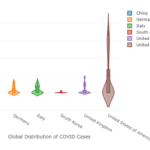
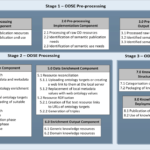
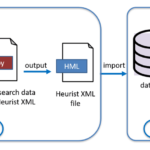
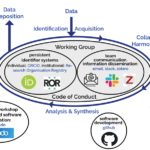
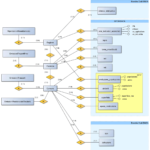






 This is the twenty second in the
This is the twenty second in the

